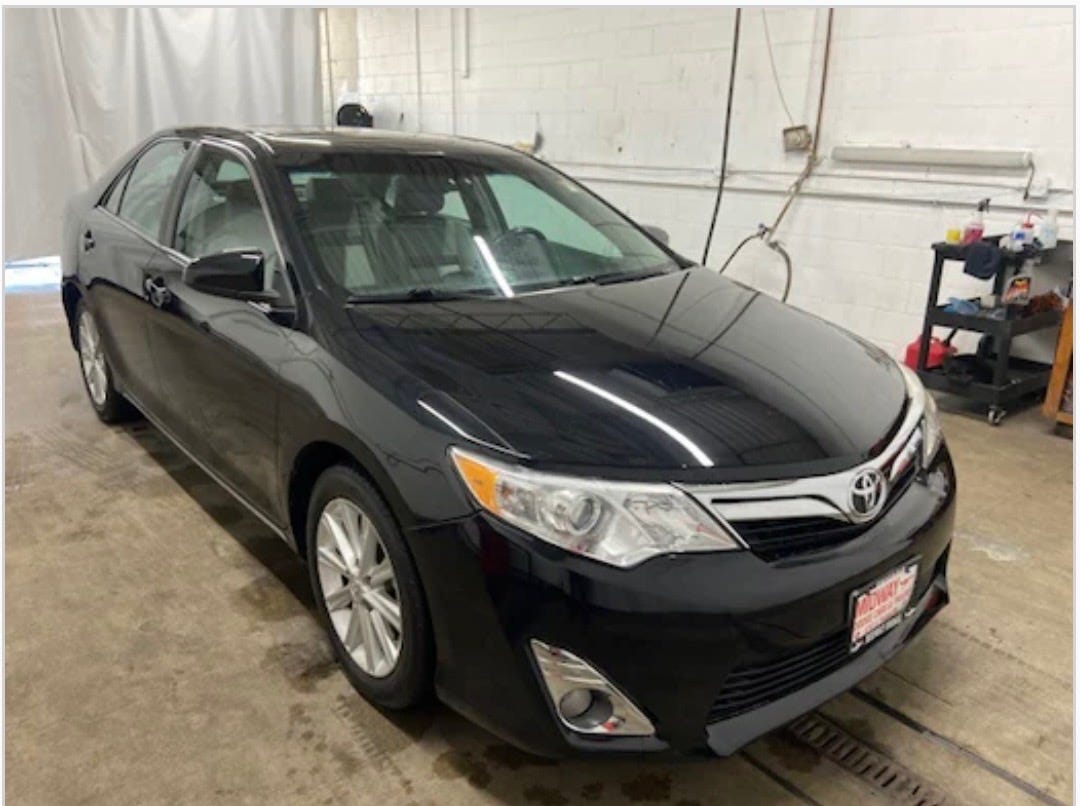The damage was clear. The decision wasn't
Insurance wrote off my car, but I’m not ready to give it up.

When the insurance adjuster said the words “total loss,” I didn’t believe her.
Not because the damage didn’t look bad — it did, and still does.
The left side of my Toyota Camry took the kind of hit you can’t just buff out. The driver’s door is bent, opening awkwardly like it’s thinking twice.
Before I climb in, it groans — plastic-on-plastic, parts misaligned protesting a toxic work environment.
But even that feels cosmetic compared to what’s happening under the hood.
The steering’s off, not quite unpredictable, but definitely unsettling.
The car swerves now. Not the gentle drift I’d gotten used to, but a sudden, uneven pull that feels unsafe. Something deeper is wrong.
Alignment would be the best-case scenario. But when have I ever been that lucky with this car?
And still, that’s just the mechanical part.
The real damage — the part I didn’t see coming — is what I’m still navigating.
The decision. The frustration. The hesitation. The weight of it all.
Do I take the insurance payout, walk away and start over? Or keep the car, take less money and hope repairs don’t drag me further down a financial hole?
On paper, it should be simple. But it isn’t. Every option costs something.
Time. Energy. Money. Peace of mind.
For weeks, it’s felt like I wasn’t just dealing with a busted car but carrying around the entire decision. It’s followed me into every conversation, every task, every idle moment where I should’ve been doing something else.
The decision has taken up space, real space, and not in a good way.
Because, honestly, I like this car. A lot.
It’s low key. Spacious. Gets great mileage. The sunroof’s perfect on a spring day, and the heated leather seats? Essential in a Chicago winter.
Most importantly, it’s paid off. No car note. No debt. Just mine.
That’s what made the choice harder. And that’s what made the payout feel like less of a win and more of a gut check.
Here’s the math I’ve been staring down.
If I handed over my car and title, the insurance company would give me $8,360. A decent chunk of change — but nowhere near enough to replace my baby.
Believe me, I looked. Everywhere.
That search? A whole saga of its own. Exhausting. I never came close to finding a real replacement, let alone reaching the negotiating table.
Ain’t nobody got time for that.
Worse still, keeping my beloved Camry would drop the payout to $5,195.84, money I’d need to cover repairs, though I knew full well it might not be nearly enough.
Insurance, as it turns out, is less about being protected and more about being boxed in. The numbers are what they are. The terms are locked. The system is built to move you along, not hear you out.
That gap — almost $3,200 — was the crux of the whole mess. Take the money and say goodbye, or hold onto the car and hope the repairs don’t sink me deeper.
In the end, I kept the car.
For weeks, I couldn’t decide. Each time I nearly let it go, something stopped me.
Buying a new car meant a note, interest, fees, taxes. All for something I didn’t want. I knew this one. Its quirks, its strengths, its flaws.
Like with the old Dodge, I planned to pass this Camry to Parker. I don’t know how much life it has left. I just know I’m not ready to let someone else decide.
So I took the smaller check, kept the car and called for an estimate.
Now I’m bracing for what comes next.




"The car swerves now. Not the gentle drift I’d gotten used to, but a sudden, uneven pull that feels unsafe."
While I understand the economics of your decision, the above sentences concern me. Please stay safe, Darnell.
If you are never planning to sell the car and just run it into the ground, that is probably the better choice.